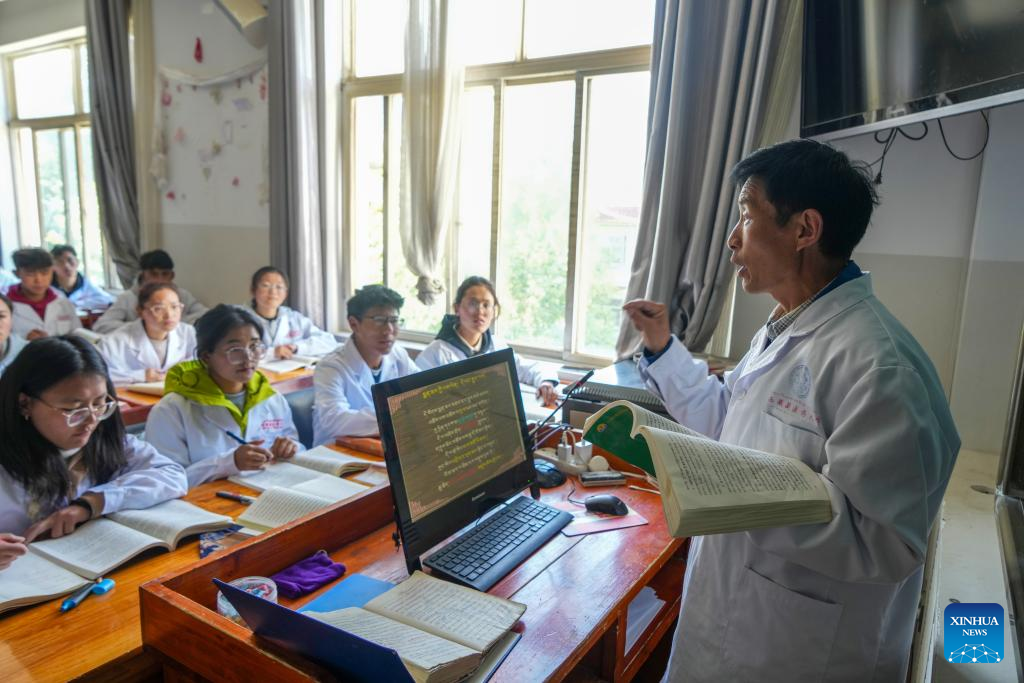
Delegates unveil a research institute for the study of the "Four Treatises of Tibetan Medicine," a Tibetan medical classic, in Lhasa, southwest China's Xizang Autonomous Region, Sept. 7, 2024. (Xinhua/Tenzing Nima Qadhup)
LHASA, Sept. 7 (Xinhua) -- Southwest China's Xizang Autonomous Region on Saturday established a research institute for the study of the "Four Treatises of Tibetan Medicine," a Tibetan medical classic, located at the University of Tibetan Medicine.
Written between the eighth and 12th centuries, the "Four Treatises of Tibetan Medicine" is the most influential foundational work in Tibetan medicine. It comprehensively reflects the historical trajectory of the development of Tibetan medicine and has played an important role in the development of the field across the Qinghai-Xizang Plateau and the trans-Himalayan and Mongolian regions.
The work has been included on the Chinese archival document heritage list and the UNESCO International Memory of the World Register, making it one of the treasures of China's traditional culture.
The "Four Treatises of Tibetan Medicine" represents the highest level of Tibetan medicine, and the establishment of the institute aims to further scientific research on its theories and apply them to clinical practice, thus improving the clinical efficacy of Tibetan medicine, said Migmar, president of the university.
As China's only university established specifically for Tibetan medicine, the University of Tibetan Medicine has more than 2,600 students on its campus, with the "Four Treatises of Tibetan Medicine" being its main teaching classic. So far, the university has trained more than 8,000 professionals in Tibetan medicine.
The research institute plans to invite domestic and international experts to conduct regular in-depth research and systematic reviews of the "Four Treatises of Tibetan Medicine," and relevant research findings are expected to be published in the future, according to the university. ■

Students attend a class on the study of the "Four Treatises of Tibetan Medicine" at the University of Tibetan Medicine in Lhasa, southwest China's Xizang Autonomous Region, May 16, 2024. (Xinhua/Tenzing Nima Qadhup)



